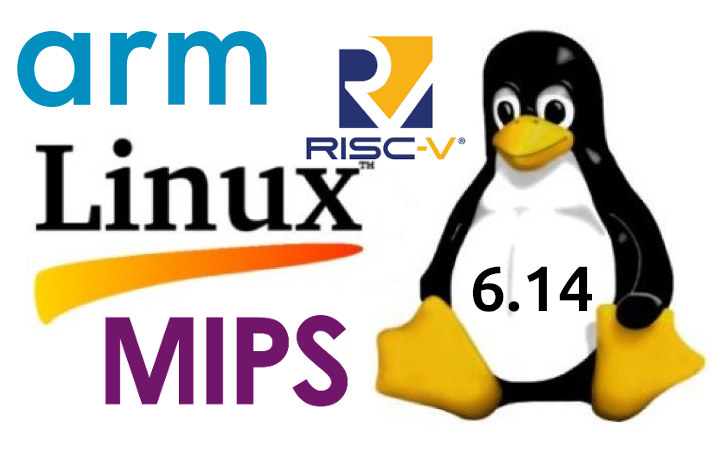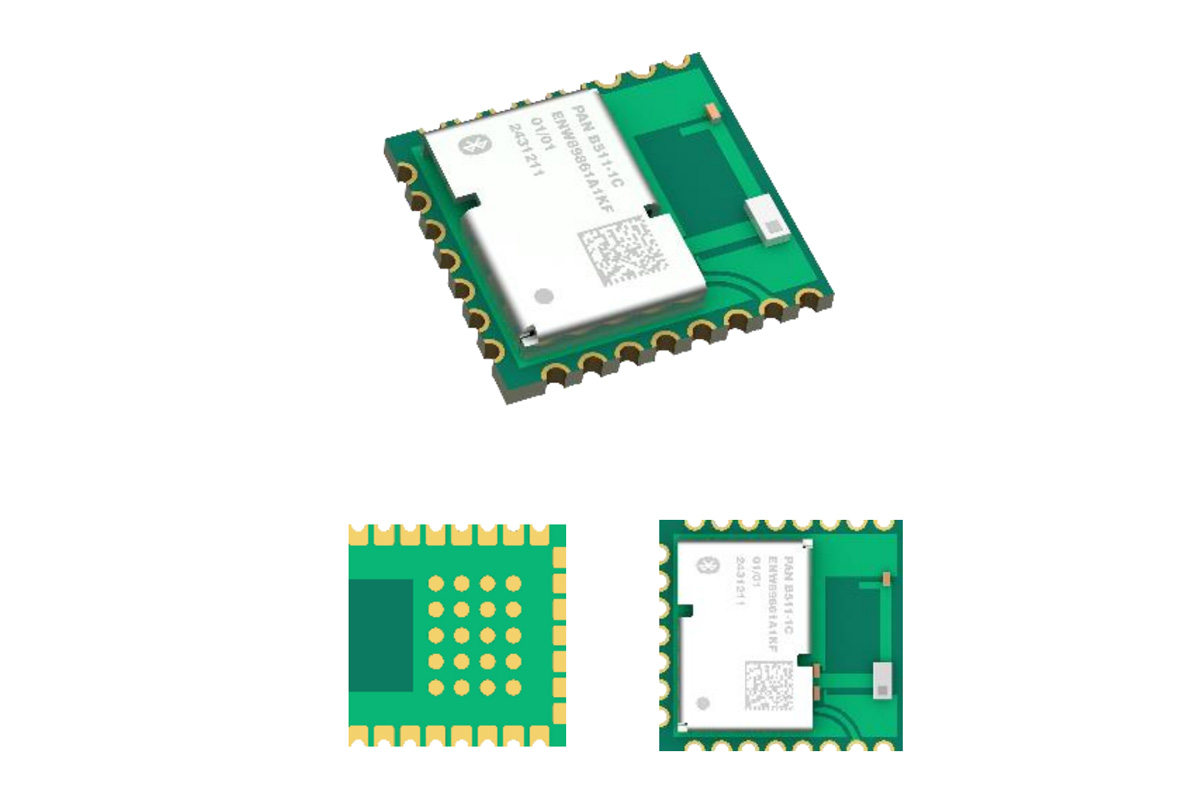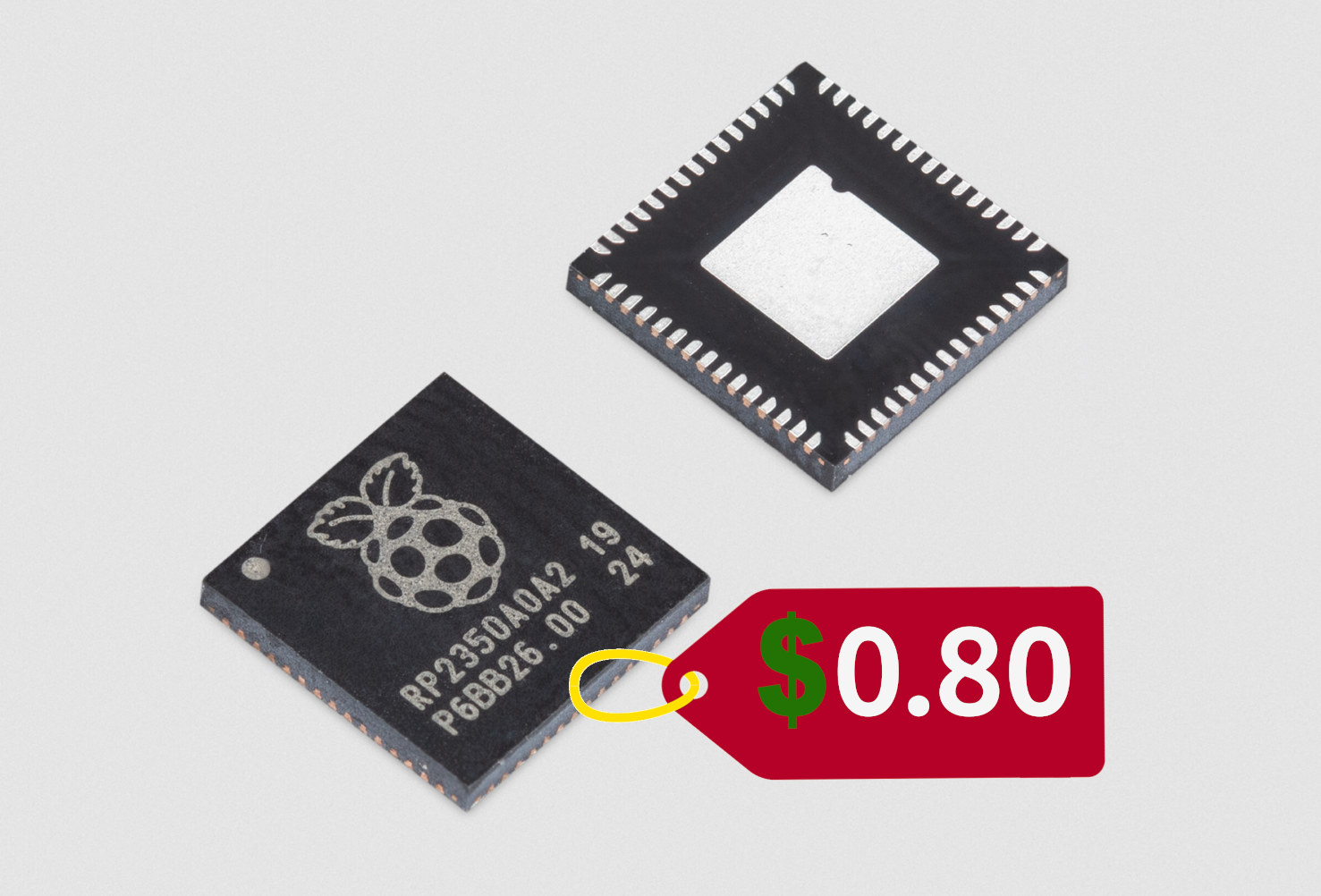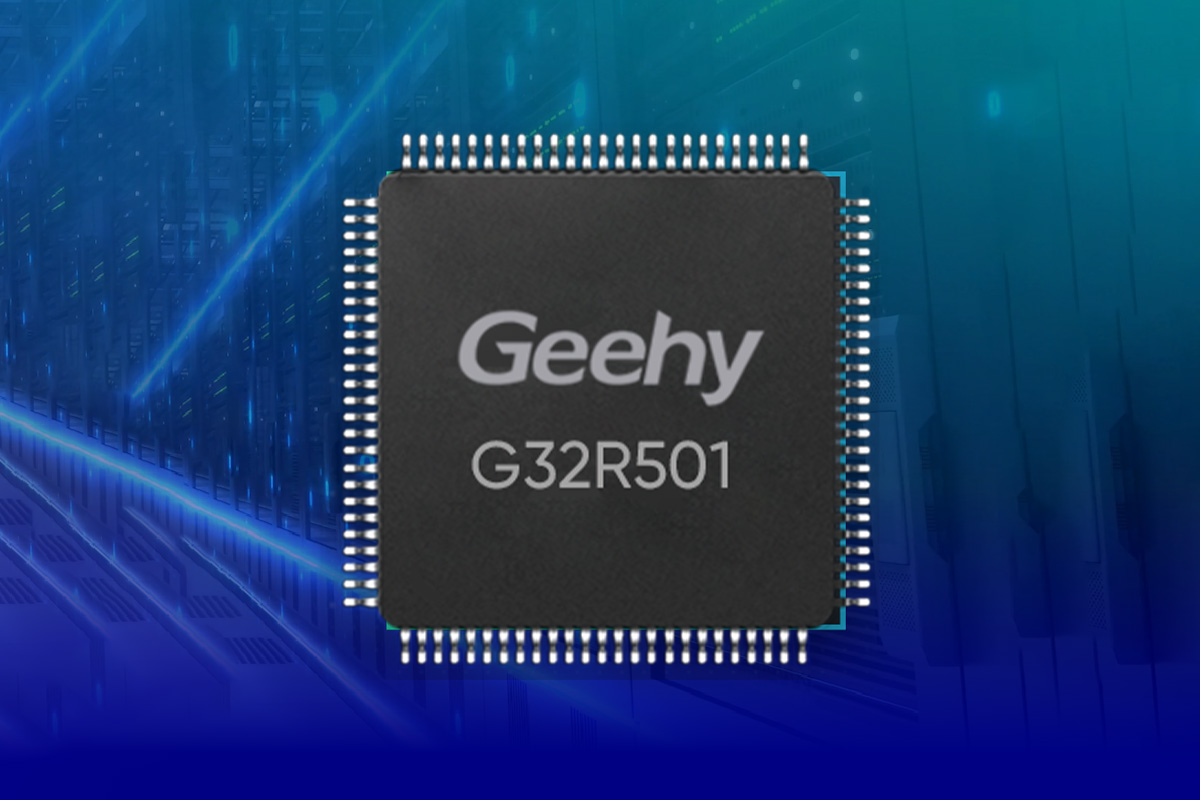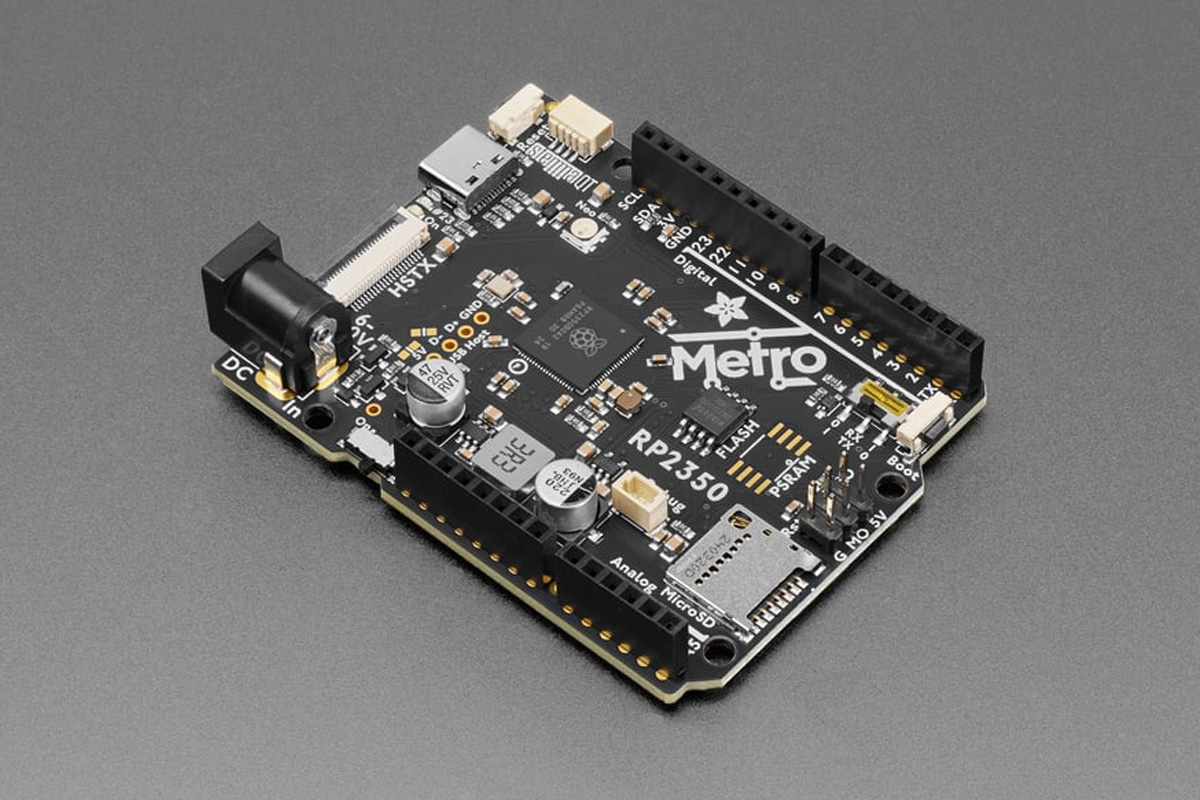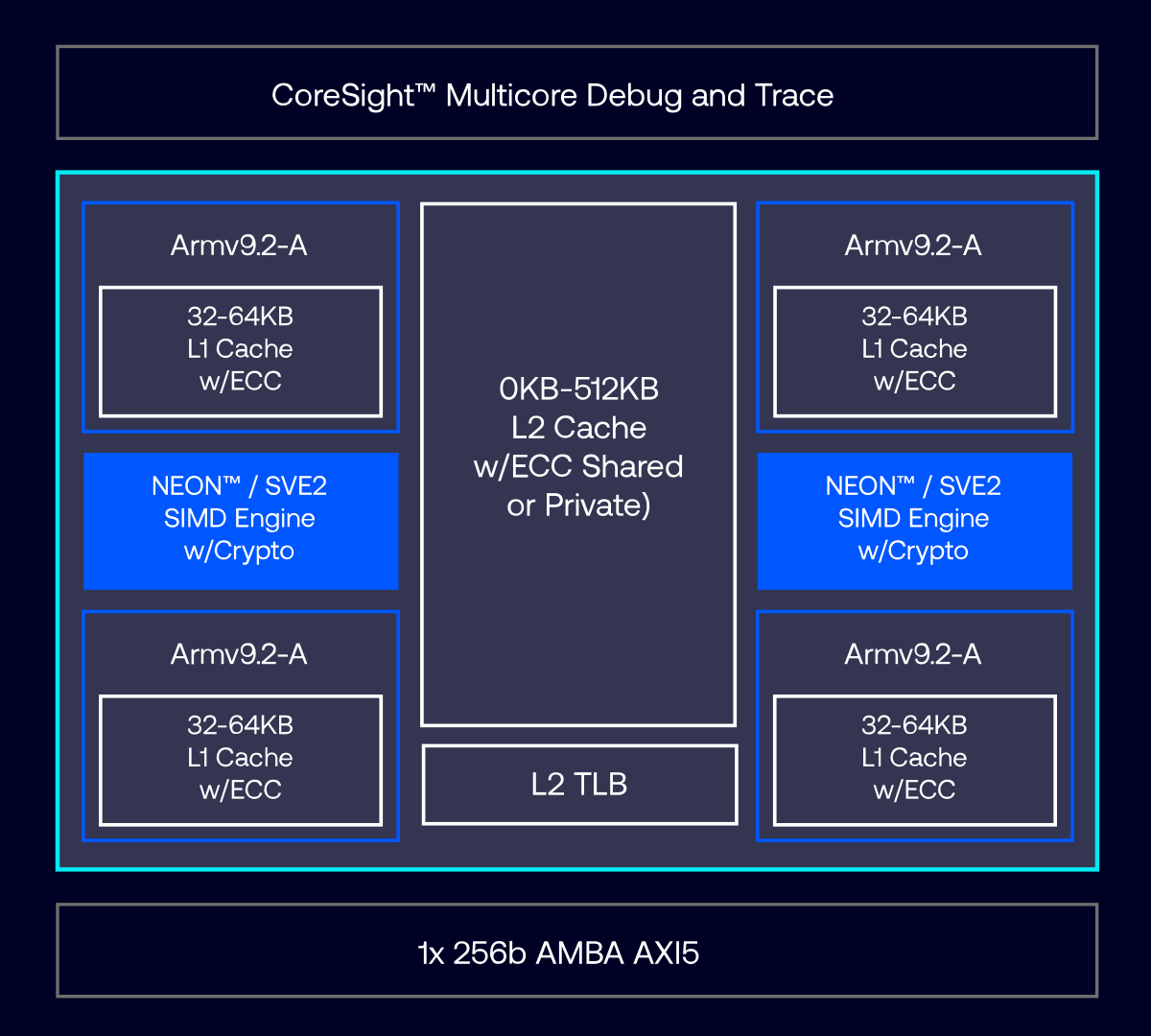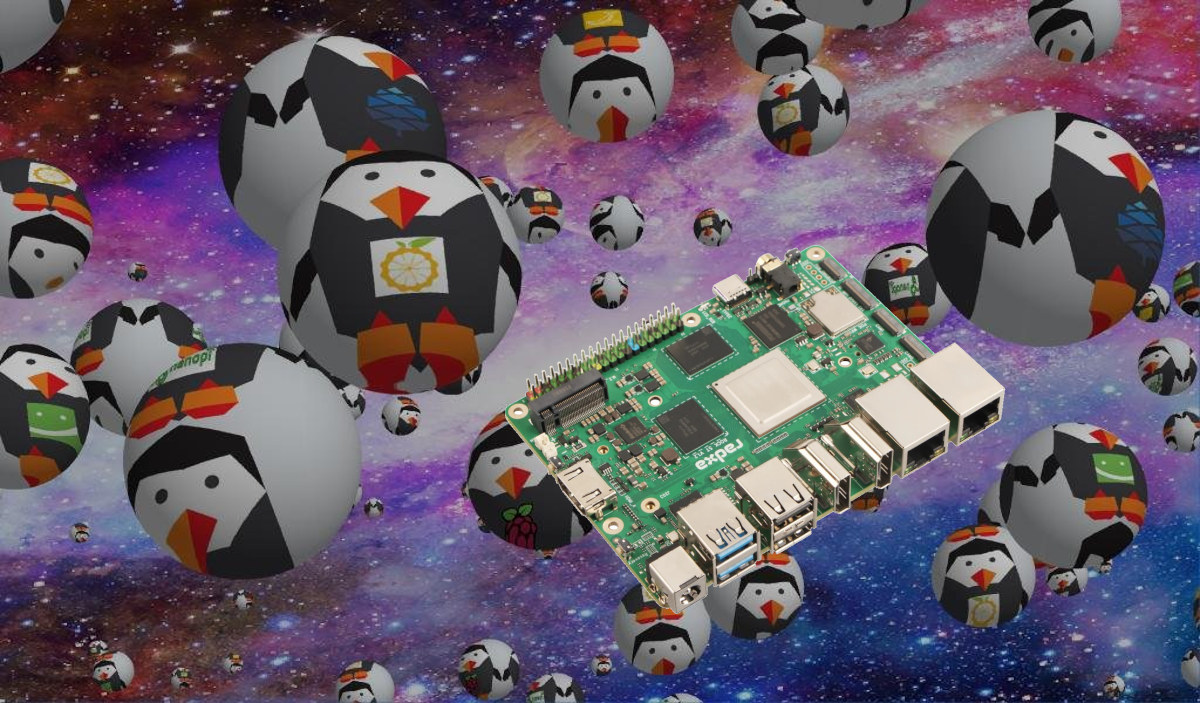Linus Torvalds has just announced the release of Linux 6.14 on LKML: So it’s early Monday morning (well – early for me, I’m not really a morning person), and I’d love to have some good excuse for why I didn’t do the 6.14 release yesterday on my regular Sunday afternoon release schedule. I’d like to say that some important last-minute thing came up and delayed things. But no. It’s just pure incompetence. Because absolutely nothing last-minute happened yesterday, and I was just clearing up some unrelated things in order to be ready for the merge window. And in the process just entirely forgot to actually ever cut the release. D’oh. So yes, a little delayed for no good reason at all, and obviously that means that the merge window has opened. No rest for the wicked (or the incompetent). Below is the shortlog for the last week. It’s nice and […]
Panasonic PAN B511-1C Bluetooth 6.0 and 802.15.4 module features castellated holes and LGA footprint
Panasonic industry has recently introduced the PAN B511-1C Bluetooth 6.0 and 802.15.4 module based on the Nordic Semi nRF54L15 SoC and designed for ultra-low-power wireless communication. The compact module integrates a chip antenna, 32MBit flash memory, two Crystals, and the Nordic nRF54L51 which provides a 128 MHz Arm Cortex-M33 microcontroller with Bluetooth 6.0 (LE), Thread, Zigbee, and Matter, along with multiple peripherals such as SPI, UART, I2S, PWM, and ADC. The PAN B511-1C also implements security features to support secure boot, secure firmware updates, cryptographic acceleration, and tamper detection, making it suitable for a range of IoT, industrial automation, smart home, medical (wearables), and battery-powered applications. PAN B511-1C module specification: SoC – Nordic Semiconductor nRF54L15 MCU cores Arm Cortex-M33 with Arm TrustZone @ 128MHz RISC-V coprocessor for software-defined peripheral Memory – 256KB SRAM Storage – 1.5MB non-volatile memory Wireless Bluetooth 6.0 Data rates – 2Mbps, 1Mbps, 500kbps, 125kbps Features AoA / […]
You can now buy Raspberry Pi RP2350 MCU for 80 cents and up, RP2354A and RP2354B variants coming soon
The Raspberry Pi RP2350 dual-core Cortex-M33/RISC-V MCU was first unveiled along with the Raspberry Pi Pico 2 in August 2024. Since then we have covered many Raspberry Pi RP2350 news and boards, but the microcontroller was hard to source for hobbyist and low-volume projects, which partially explains why companies like NextPCB had promotions offering free PCBA prototyping services for RP2350 designs. The good news is that Raspberry Pi has just announced general availability for the RP2350 microcontrollers starting at $0.80 per unit for the RP2350A in 3,400-piece reels, or $1.1 in single quantity, so anybody can buy the MCUs from their favorite distributor. The British company also announced the RP2354A and RP2354B variants with 2MB of stacked flash memory would soon be available to select partners and mass production will ramp up later this year. Here’s the current official pricing information for the RP2040 and RP2350 microcontrollers. Users can simply […]
IMDT V2N Renesas RZ/V2N SoM powers Edge AI SBC with HDMI, MIPI DSI, dual GbE, WiFi 4, and more
IMD Technologies has recently introduced the IMDT V2N SoM based on the newly launched Renesas RZ/V2N low-power AI MPU and its SBC carrier board designed for robotics, smart cities, industrial automation, and IoT applications. The SoM ships with 8GB RAM and 32GB eMMC flash, and supports various interfaces through B2B connectors including two 4-lane MIPI CSI-2 interfaces, a MIPI DSI display interface, and more. The SBC supports MIPI DSI or HDMI video output, dual GbE, WiFi 4 and Bluetooth 5.2, as well as expansion capabilities through M.2 sockets. IMDT V2N SBC specifications: IMDT V2N SoM SoC – Renesas RZ/V2N Application Processor – Quad-core Arm Cortex-A55 @ 1.8 GHz (0.9V) / 1.1 GHz (0.8V) L1 cache – 32KB I-cache (with parity) + 32KB D-cache (with ECC) per core L3 cache – 1MB (with ECC, max frequency 1.26 GHz) Neon, FPU, MMU, and cryptographic extension (for security models) Armv8-A architecture System Manager […]
Geehy G32R501 dual-core Cortex-M52 industrial AI MCU targets industrial and automotive applications
Geehy Semiconductor has introduced the G32R501 Cortex-M52 industrial AI MCU, the industry’s first real-time MCU based on a dual-core Arm Cortex-M52 architecture. Designed for industrial automation, commercial power supplies, and electric vehicles. Back in 2023, we talked about the features and specifications of the Arm Cortex-M52 core, but now Geehy has introduced the G32R501 MCU with AI and DSP capabilities designed for low-cost IoT applications. This MCU features single and double-precision FPUs, an Arm Helium DSP extension, and Geehy’s Zidian Math Instruction Extension for AI/ML tasks and signal processing. It includes 640 KB Flash, 128 KB SRAM, TCM (Tightly Coupled Memory), and a six-channel DMA module for efficient data handling. The MCU also features three 12-bit ADCs (3.45 MSPS), seven 12-bit DAC comparators, and Σ-Δ filter modules to improve signal accuracy, making it ideal for motor control and real-time monitoring. With 16 high-resolution PWM channels (150-ps resolution), quadrature encoder modules, […]
Adafruit Metro RP2350 development board follows Arduino UNO form factor, features HSTX DVI output
The Adafruit Metro RP2350 is a Raspberry Pi RP2350 development board that closely follows the Arduino UNO form factor for compatibility with existing Arduino shields. Key features include 37 GPIOs, a microSD card slot, a 5V buck converter (6–17V input), an onboard RGB NeoPixel, a Stemma QT port for I2C peripherals, a 22-pin HSTX port for DVI video output, and a USB Type-C port for power and data. It also provides a Pico Probe debug port, an RX/TX switch for UART flexibility, and a UF2 bootloader for easy firmware updates. Target applications include IoT projects, embedded system development, hardware prototyping, and educational purposes. Adafruit Metro RP2350 specifications SoC – Raspberry Pi RP2350 CPU Dual-core Arm Cortex-M33 @ 150 MHz with Arm Trust zone, Secure boot Dual-core RISC-V Hazard3 @ 150 MHz Up to two cores can be used at any given time Memory – 520 KB on-chip SRAM Security 8KB of […]
Arm Cortex-A320 low-power CPU is the smallest Armv9 core, optimized for Edge AI and IoT SoCs
Arm Cortex-A320 is a low-power Armv9 CPU core optimized for Edge AI and IoT applications, with up to 50% efficiency improvements over the Cortex-A520 CPU core. It is the smallest Armv9 core unveiled so far. The Armv9 architecture was first introduced in 2021 with a focus on AI and specialized cores, followed by the first Armv9 cores – Cortex-A510, Cortex-A710, Cortex-X2 – unveiled later that year and targeting flagship mobile devices. Since then we’ve seen Armv9 cores on a wider range of smartphones, high-end Armv9 motherboards, and TV boxes, The upcoming Rockchip RK3688 AIoT SoC also features Armv9 but targets high-end applications. The new Arm Cortex-A320 will expand Armv9 usage to a much wider range of IoT devices including power-constrained Edge AI devices. Arm Cortex-A320 highlights: Architecture – Armv9.2-A (Harvard) Extensions Up to Armv8.7 extensions QARMA3 extensions SVE2 extensions Memory Tagging Extensions (MTE) (including Asymmetric MTE) Cryptography extensions RAS extensions […]
Armbian v25.2 and DietPi v9.11 released with updated Ubuntu and Debian-based Linux images for single board computers
Vendor-provided Linux images for single board computers are not always working optimally, so this post is a regular reminder that users may want to check out Armbian and DietPi projects mostly supported by the community but also backed by some of the vendors who offload some (repackaging) software work to them. Armbian and DietPi are separate projects, but this month, Armbian v25.2 and DietPi v9.11 were almost released simultaneously. I don’t report on each release (should I?), but they release an update every few months. The last time we had a look at both projects was in September 2024 for the releases of DietPi 9.7 and Armbian 24.8. Let’s see what the new releases have to bring. Armbian v25.2 Main changes: New Boards – Rock 2A and 2F, NanoPi R3S, Retroid Pocket RP5, RPMini, Rock 5T, GenBook, MKS-PI, SKIPR, Armsom CM5, NextThing C.H.I.P, Magicsee C400 Plus Rockchip 3588 Improvements – […]


